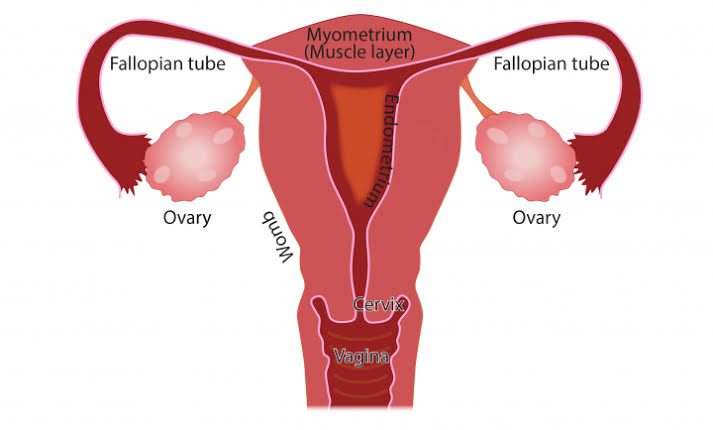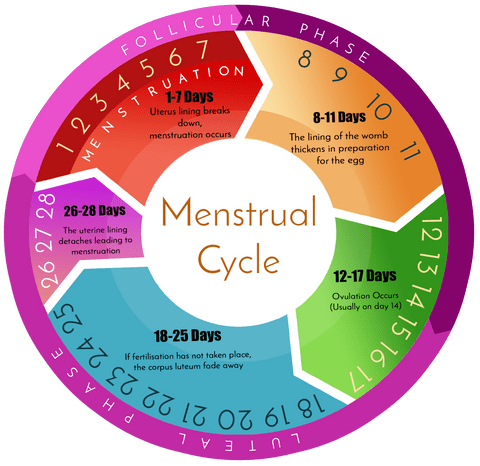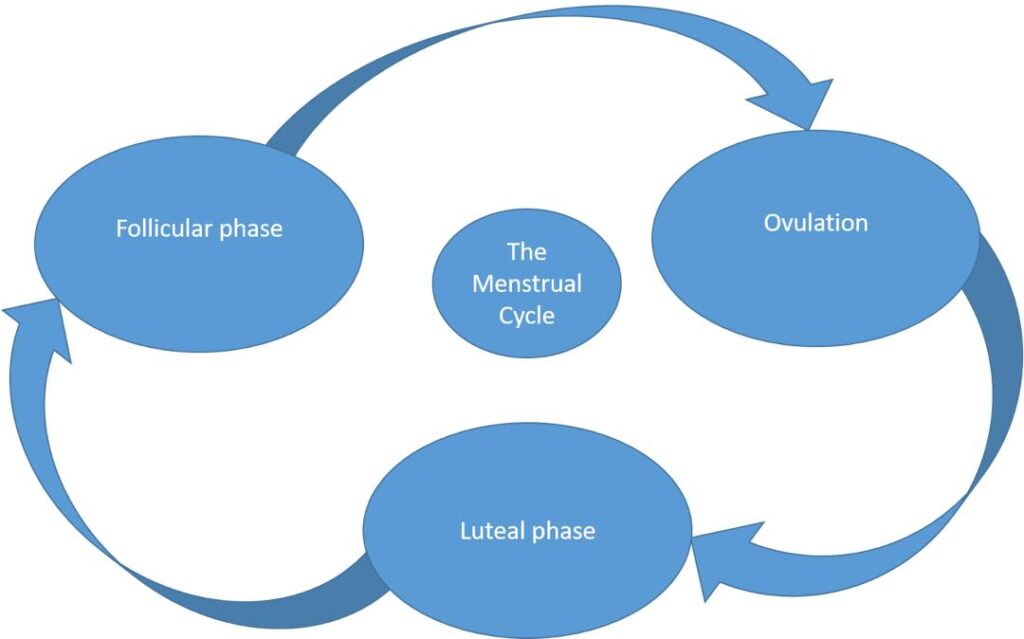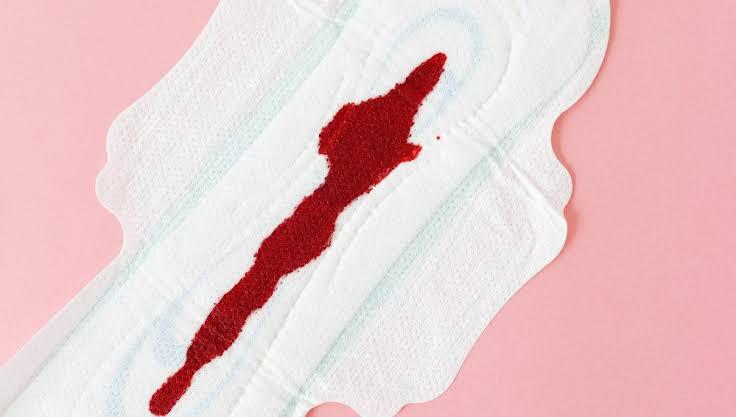⚠️ Medical Disclaimer
Important: This content is for informational and educational purposes only. It should not be used as a substitute for professional medical advice, diagnosis, or treatment. Always consult with a qualified healthcare provider before making changes to your diet, taking supplements, or if you have questions about a medical condition. Never disregard professional medical advice or delay seeking it because of information you read here.
Last Updated on January 18, 2024 by Grace Oluchi
The menstrual cycle is a natural and essential part of a woman’s reproductive health. However, what is considered normal and what is not can vary from person to person. In this article, we will answer the top 5 frequently asked questions about the menstrual cycle to help you understand what to expect and when to seek medical attention.
Menstrual Flow.
Menstrual flow might occur every 21 to 35 days and last two to seven days. For the first few years after menstruation begins, long cycles are common.


However, menstrual cycles tend to shorten and become more regular as you age. It’s the process in a woman of discharging blood and other material from the lining of the uterus at intervals of about one lunar month from puberty until the menopause, except during pregnancy.
WHAT IS MENSTRUATION?
It is also described as the regular discharge of blood and mucosal tissue from the inner lining of the uterus through the vagina. The menstrual cycle is characterized by the rise and fall of hormones. Menstruation is triggered by falling progesterone levels and is a sign that pregnancy has not occurred.
WHAT IS A MENSTRUAL CYCLE?


The menstrual cycle is a term to describe the sequence of events that occur in your body as it prepares for the possibility of pregnancy each month. Your menstrual cycle is the time from the first day of your menstrual period until the first day of your next menstrual period. Every person’s cycle is slightly different, but the process is the same.
HOW LONG IS A NORMAL MENSTRUAL CYCLE?
The average length of a menstrual cycle is 28 days. However, a cycle can range in length from 21 days to about 35 days and still be normal.
You May Also Read
- Am I Pregnant? Early symptoms of pregnancy
- Is it Safe to Lick Vaginal Fluid?
- Why Do I Have Lower Right Abdominal Pain?
- Headaches: Headache types, Medicine and Treatment.
- Sleep Your Way to Better Health: Understanding the Importance
HOW MANY DAYS BETWEEN PERIODS IS NORMAL?
The length of the menstrual cycle varies from woman to woman, but the average is to have periods every 28 days. Regular cycles that are longer or shorter than this, from 23 to 35 days, are normal. The menstrual cycle is the time from the first day of a woman’s period to the day before her next period.
WHAT ARE THE 4 PHASES OF A MENSTRUAL CYCLE?


There are four main phases of the menstrual cycle.
- Menstruation.
- The follicular phase.
- Ovulation.
- The luteal phase.
- Menstruation
Menstruation (period). When you menstruate, your uterus lining sheds and flows out of your vagina. Your period contains blood, mucus and some cells from the lining of your uterus. The average length of a period is three to seven days.
Sanitary pads, tampons, period underwear or menstrual cups can be in use to absorb your period. Pads and tampons need to be changed regularly (preferably every three to four hours) and menstrual cups should be changed every eight to 12 hours.
- The follicular phase
The follicular phase starts on the first day of your period and lasts for 13 to 14 days, ending in ovulation. The pituitary gland in the brain releases a hormone to stimulate the production of follicles on the surface of an ovary. Usually, only one follicle will mature into an egg. This can happen from day 10 of your cycle. During this phase, your uterus lining also thickens in preparation for pregnancy.
- Ovulation
Ovulation is when a mature egg is released from an ovary and moves along a fallopian tube towards your uterus. This usually happens once each month, about two weeks before your next period. Ovulation can last from 16 to 32 hours.
It is possible to get pregnant in the five days before ovulation and on the day of ovulation, but it’s more likely in the three days leading up to and including ovulation. Once the egg is released, it will survive up to 24 hours. If sperm reaches the egg during this time, you may get pregnant.
- The luteal phase
After ovulation, cells in the ovary (the corpus luteum), release progesterone and a small amount of oestrogen. This causes the lining of the uterus to thicken in preparation for pregnancy.
If a fertilised egg implants in the lining of the uterus, the corpus luteum continues to produce progesterone, which maintains the thickened lining of the uterus.
If pregnancy does not occur, the corpus luteum dies, progesterone levels drop, the uterus lining sheds and the period begins again.
AT WHAT AGE SHOULD MENSTRUATION TYPICALLY BEGIN?
People start menstruating at the average age of 12. However, you can begin menstruating as early as 8 years old or as late as 16 years old. Generally, most people menstruate within a few years of growing breasts and pubic hair.
People stop menstruating at menopause, which occurs at about the age of 51. At menopause, you stop producing eggs (stop ovulating). You’ve reached menopause when you haven’t gotten a period in one year.
How do I Find the Perfect Pad?
To find the perfect menstruation pad, you can try different sizes and absorbencies to see which one works best for your flow. Consider your activity level and the length of your period when choosing a pad. Don’t forget to also pay attention to the fit and comfort of the pad to ensure it stays in place and doesn’t cause irritation.
COMMON MENSTRUAL PROBLEMS.
Some of the more common menstrual problems include:
- Premenstrual syndrome (PMS).
- Dysmenorrhea or painful periods.
- Heavy menstrual bleeding (previously known as menorrhagia).
- Amenorrhea – or absence of menstrual periods.
- Premenstrual syndrome (PMS): hormonal events before a period can trigger a range of side effects in women at risk, including fluid retention, headaches, fatigue and irritability. Treatment options include exercise and dietary changes.
- Dysmenorrhea – or painful periods: It is thought that the uterus is prompted by certain hormones to squeeze harder than necessary to dislodge its lining. Treatment options include pain-relieving medication and the oral contraceptive pill.
- Heavy menstrual bleeding (previously known as menorrhagia): if left untreated, this can cause anemia. Treatment options include oral contraceptives and a hormonal intrauterine device (IUD) to regulate the flow.
- Amenorrhea – or absence of menstrual periods: This is considered abnormal, except during pre-puberty, pregnancy, lactation and post menopause. Possible causes include low or high body weight and excessive exercise.
HOW TO KEEP TRACK OF YOUR PERIOD.
- Mark the first day of your period on a calendar with an X. This is day one.
- Continue to mark each day you’re bleeding with an X. Stop marking when your bleeding stops.
- When bleeding starts again, mark it with an X. This is day one again.
- You can then count the number of days between each first X to get the length of your cycle. Count the number of X’s to see how many days bleeding lasts.
- There are also apps that do all of this for you that you can download on your devices.
WHAT IS CONSIDERED AN IRREGULAR PERIOD?
Irregular menstruation describes anything that’s not a normal menstrual period. Some examples of an irregular period are:
- Periods that occur less than 21 days or more than 35 days apart.
- Not having a period for three months (or 90 days).
- Period bleeding that lasts longer than seven days.
- Periods that are accompanied by severe pain, cramping, nausea or vomiting.
- Bleeding or spotting that happens between periods.
- Menstrual flow that’s much heavier or lighter than usual.
WHAT ARE THE COMPLICATIONS ASSOCIATED WITH IRREGULAR MENSTRUAL PERIODS?
Heavy blood flow isn’t always a sign that something is wrong. However, excessive loss of blood can deplete the body’s supply of iron and cause anemia. A mild case of anemia can cause fatigue and weakness. A more severe case can result in the following symptoms:


- Headaches.
- Dizziness.
- Shortness of breath
- Rapid heart rate.
- A very heavy flow can also cause painful cramping, or dysmenorrhea, which sometimes requires medication.
WHEN SHOULD I WORRY ABOUT MY PERIOD?
Contact your healthcare provider if:


- You haven’t had a period by the age of 16.
- You don’t get your period for three months or longer.
- You’re suddenly bleeding for more days than usual.
- You’re bleeding much lighter or much heavier than usual.
- You have severe pain during your period.
- You have bleeding between periods.
- You feel sick after using tampons.
- You think you might be pregnant.
- Your period hasn’t come back within three months of stopping birth control pills and you know you’re not pregnant.
- You have any questions or concerns about your period or possible pregnancy.
The Key Takeaway.
Your menstrual cycle provides valuable insights to your healthcare provider about your reproductive health. A normal menstrual cycle can last between 21 and 35 days. You can expect to bleed between three and seven days each time you get your period. Contact your healthcare provider if you have questions or concerns about your menstrual cycle. In some cases, an irregular cycle could mean you have a health condition that needs treatment.
How long should a period last?
A normal menstrual cycle typically lasts between three to seven days. However, it can be shorter or longer for some women. If your period lasts longer than seven days or is consistently irregular, it may be a sign of an underlying health condition and you should consult a doctor.
How often should a period occur?
A period should occur every 21 to 35 days. If your menstrual cycle is consistently shorter or longer than this, it may indicate a hormonal imbalance or other medical issue. It is important to track your periods and seek medical attention if you have concerns.
What is considered heavy bleeding during menstruation?
Heavy bleeding during menstruation, also known as menorrhagia, is when you soak through a pad or tampon every hour for several hours or have to use double protection. This can be a sign of an underlying medical condition, such as fibroids or endometriosis, and you should seek medical attention.
Is it normal to experience pain during menstruation?
Some discomfort during menstruation is normal, but severe pain can be a sign of a medical condition such as endometriosis or pelvic inflammatory disease. If the pain interferes with your daily activities or is not relieved by over-the-counter pain relievers, you should see a doctor.
Can stress affect the menstrual cycle?
Yes, stress can affect the menstrual cycle by disrupting the hormonal balance in the body. This can cause irregular periods or even missed periods. It is important to manage stress through self-care practices such as exercise, meditation, and getting enough rest to maintain a healthy menstrual cycle.

